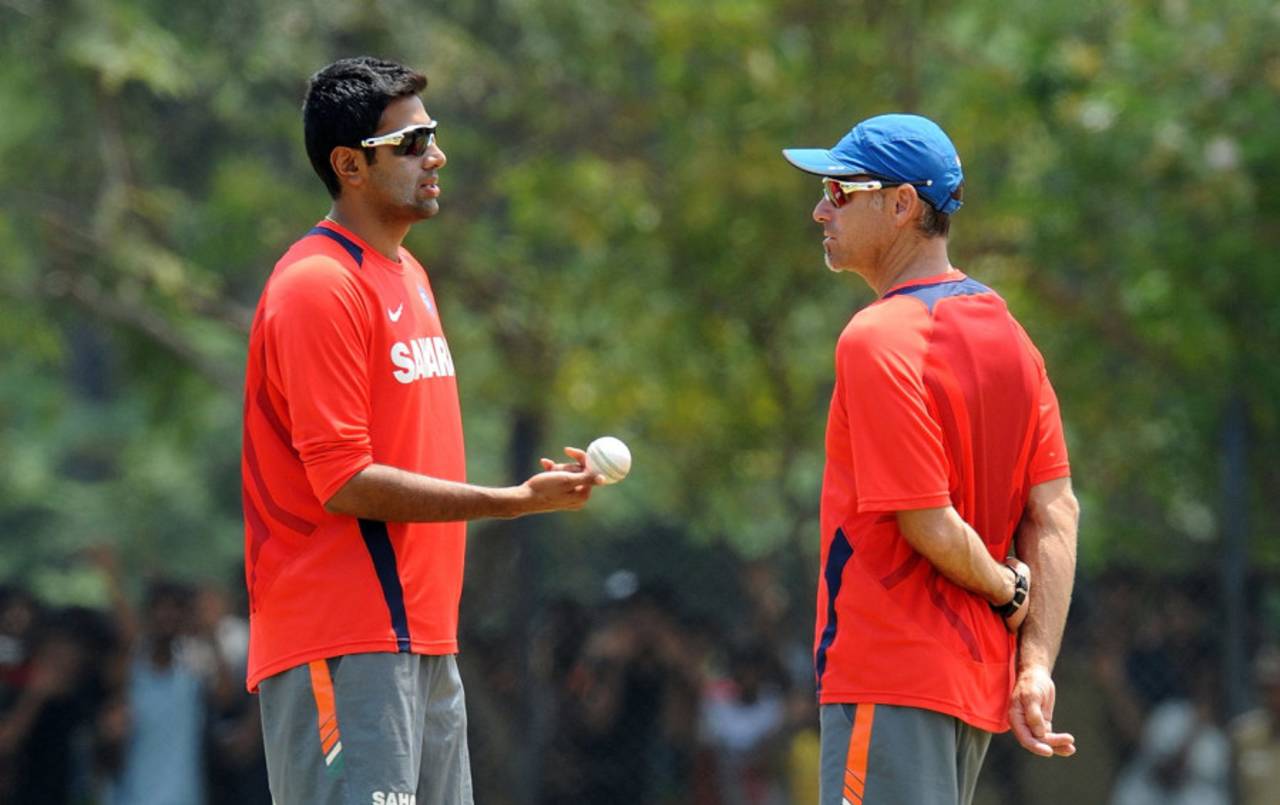What do they know of coaching who only technique know? When
Paddy Upton was appointed the mental conditioning coach of the Indian team, he became by default its physical conditioning and strategic leadership coach too. No one was quite sure what that meant, and Upton made up his job description as he went along. It served Indian cricket well.
Upton and national coach
Gary Kirsten set themselves (and India) a target: winning the 2011 World Cup. The year after they took charge, India became the No. 1 Test team in the world. Upton's focus was on "building extraordinary team cultures in high performance environments".
Even if India had not won the World Cup, the approach towards the goal - described in detail here - might have served as the textbook for those following in the footsteps of the two men from South Africa.
The Indian cricket team is notoriously difficult to coach. The national coach can either adapt the team to his methods or adapt himself to the team's. John Wright, under whom India first began to do well abroad consistently, decided that the latter course suited his temperament best. Greg Chappell tried the former, and came up against a wall of protest and indifference.
Anil Kumble, who played under the stewardship of both, found his stature and certainty worked against him, and he quit when it became clear that he and the captain were not on the same page. Longevity in the job depends on how much a coach is willing to concede to the captain and to players who don't like to be told what to do.
If Kirsten was a success, some of the credit should go to Upton. When Kirsten first asked Sachin Tendulkar what kind of a coach he wanted, the batsman replied: "I want you to be my friend."
This is not surprising. At the international level, the coach is not expected to correct basic technique or suggest fundamental changes. It is a fine-tuning job. Indian players - who, in the past have used the physical trainer as a personal valet - are drawn to a psychologist like Upton, who builds confidence and has empathy. Rahul Dravid called him a "thought leader".
"Managing the ego," writes Upton "was one of the most important factors in nurturing the growth and performance of the Indian team."
The Barefoot Coach is as much about how Upton changed Indian cricket as vice versa. The cast of characters, besides the cricketers, includes Albert Einstein, the philosopher Karl Popper, Malcolm Gladwell, the historian Theodore White, Bob Dylan, Paulo Coelho and more.
In a
chapter on mental toughness, Upton says that there is no such thing, and shows how the definitions associated with the quality (barring a crucial one) apply equally to psychopaths.
Although the book comes dangerously close to sounding like a chicken-soup-type manual, Upton often pulls himself back from the brink by subverting the dos-and-don'ts, for example, with his "Seven Habits of Highly Effective Losers".
He can take at least joint credit for the popular phrase "Team India". He tells us the "T" was a reminder that "the team comes first", the "E" for "Excellent entertainers", the "A" for "attitude" and the "M" for "mature individuals".
Occasionally, the book overreaches. Upton understood the Indian psyche best, he says, by reading books on India at war, where he noticed "some striking resemblances with Indian cricket efforts". He made a presentation to the team to that effect, with a homemade video.
This is what he discovered: India rarely pursued a war outside the subcontinent, leading him to "understand" why India win only a small percentage of matches abroad. Modern India has never been an aggressor at war (the parallel, Upton concludes from this, is that India have seldom won the first Test of a series). Once attacked, India always fights back (cricketing parallel: Kolkata and the defeat of Australia after following on). Handing back the advantage - India has been uniquely forgiving post-war, handing back territory or not pushing home the advantage. Similarly in cricket, complacency when on top has meant handing the opposition the advantage. Divide and conquer, region-wise, religion-wise etc. "We knew the Indian team was easy to divide into factions based on class, seniority, skill-level," he says.
All this is too forced, even if, as he says, "most players visibly resonated with the comparison".
The Barefoot Coach is a book for three kinds of readers. The fan of self-help books, the fan of Indian cricket in its golden period or the Tendulkar era, and the student of coaching and its issues. It is, too, a paean to communication and its importance in coaching, and in fact, any human interaction.
Is it overwritten? Perhaps. But there is wisdom here from one of the finest in the field.
The Barefoot Coach
By Paddy Upton
Westland Sport
377 pages, Rs 799
Suresh Menon is the editor of the Wisden India Almanack

